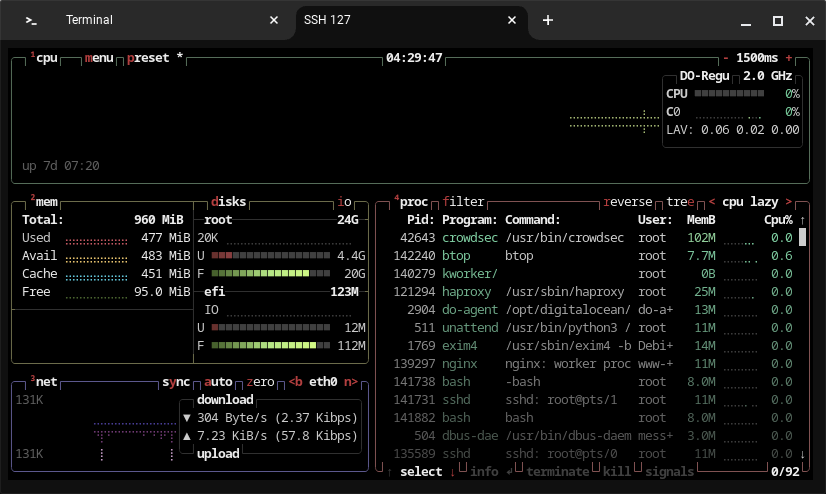Mine is a 2020 with 32gb storage and 3gb ram but same ballpark. I just replaced my PC earlier this year but the Chromebook is next. I’m looking at renewed HP elitebooks or renewed ThinkPads, but I’m not sure either come in a size OP would want.
- 0 Posts
- 6 Comments
Came to second this. I have an old hp Chromebook that is indestructible, has insane battery life, and still has a few years of updates left. The built in Linux terminal is fine and just about anything you can get through apt-get, dpkg, or otherwise works fine as well (if there is an arm version), it’ll even add menu entries for GUI apps.
I do light reading or dev work on it, and use the built in terminal to keep track of and ssh into my remote boxes. I take it on the road to take notes or hop on a wifi.
When I first got it the interface was kinda crap for a laptop, but through the updates (dark mode, new menu, etc) it’s actually just fine now.
It’s slow, low ram and only usable for a few tabs at a time, but for what I use it for it does fine, and it was cheap enough I won’t cry if it dies.

 5·3 months ago
5·3 months agoI dual booted a few times back in the days of winxp and win7. Never had a good experience somehow windows or a grub update always messed up things. Haven’t ran windows in years but when I have to it goes on a separate drive now.
I’ve been coding around 25 years and got my start in perl. I absolutely hated python when I first used it. I use it all the time now. I still prefer my curly braces but I don’t have any trouble with python or mind the whitespace anymore. I just run it through ruff every save. I do the same with go everything goes through gofumpt. I really think a lot of it is a generational thing. Older people are just used to curly brackets.
I do get peoples complaints about the packaging. Unless you’re a dev already it’s a bit extra to deal with shuffling virtual environments because the system python environments almost never work out of the box, at least in the last few distros I’ve used. Once I adjusted though it’s no problem. I run half my dev stuff in toolboxes with their own environment anyway.
I second the people that said lineage OS. I am using it right now. I got this Nord phone because I knew they were easy to tinker with. I used it a bit and ended up with a newer galaxy. Well after I put lineage on the Nord every problem it had went away. Excellent battery life, runs smoothly, weekly security patches if I want etc. One thing that helped a lot was the “Aurora” app store. Let’s you install apps anonymously from the play store without requiring google services. Many of them won’t work due to the no google services, but a surprising amount of stuff does just fine even if it complains about it.



https://gitlab.gnome.org/chergert/ptyxis
Ptyxis is my current go-to. It can detect available pods or toolboxes (maybe docker too haven’t tested it) and you can open terminals directly into them. It also highlights ssh terms and root shells differently.
There are a huge number of built-in color schemes as well and I’ve had no trouble finding any configuration option I’ve found myself wanting to look for.
It’s also available on flathub so it’s easily installed in most distros.